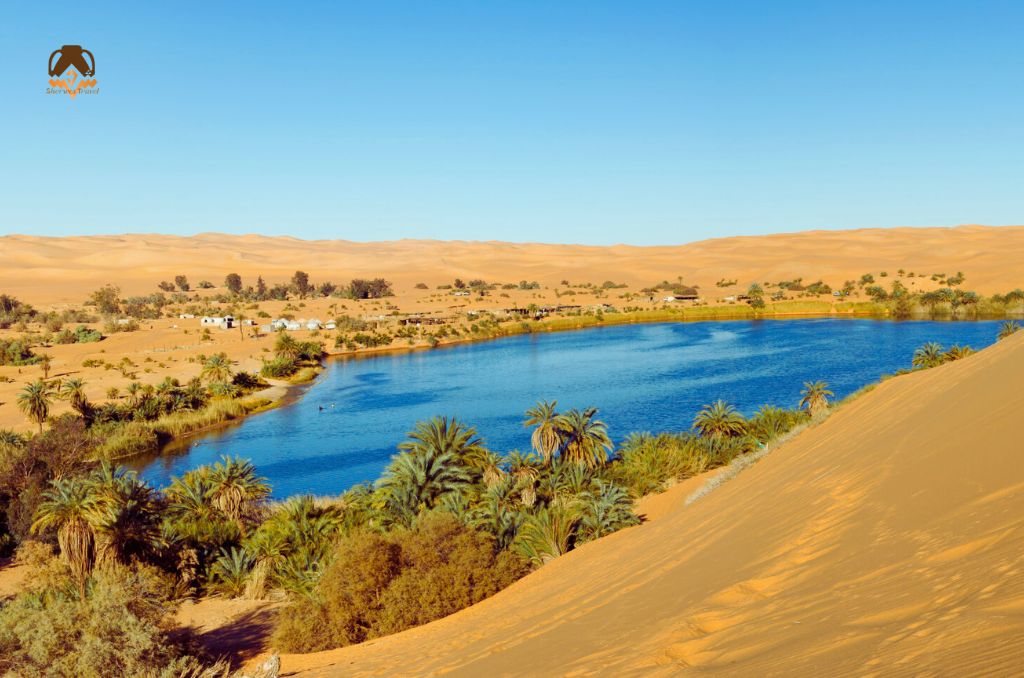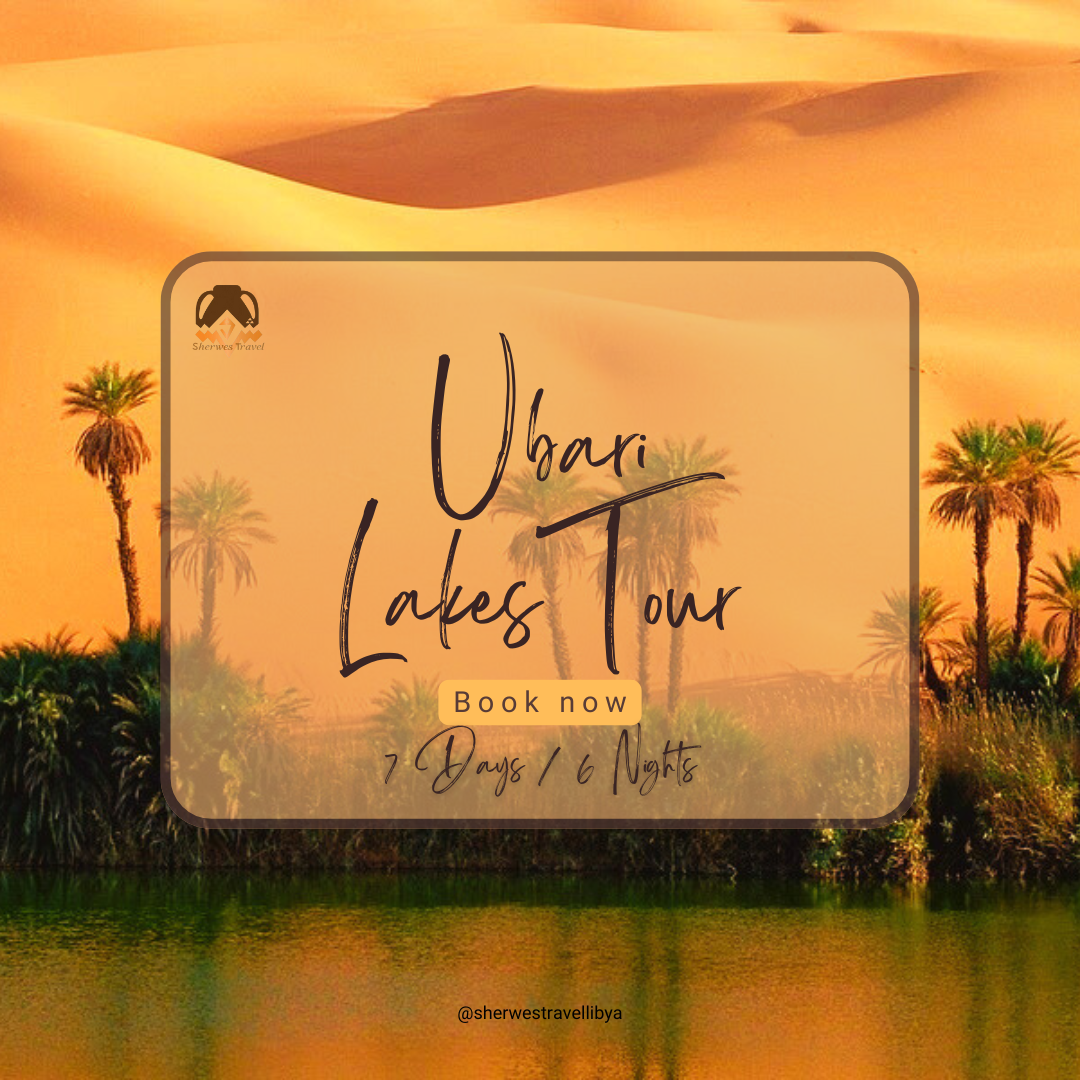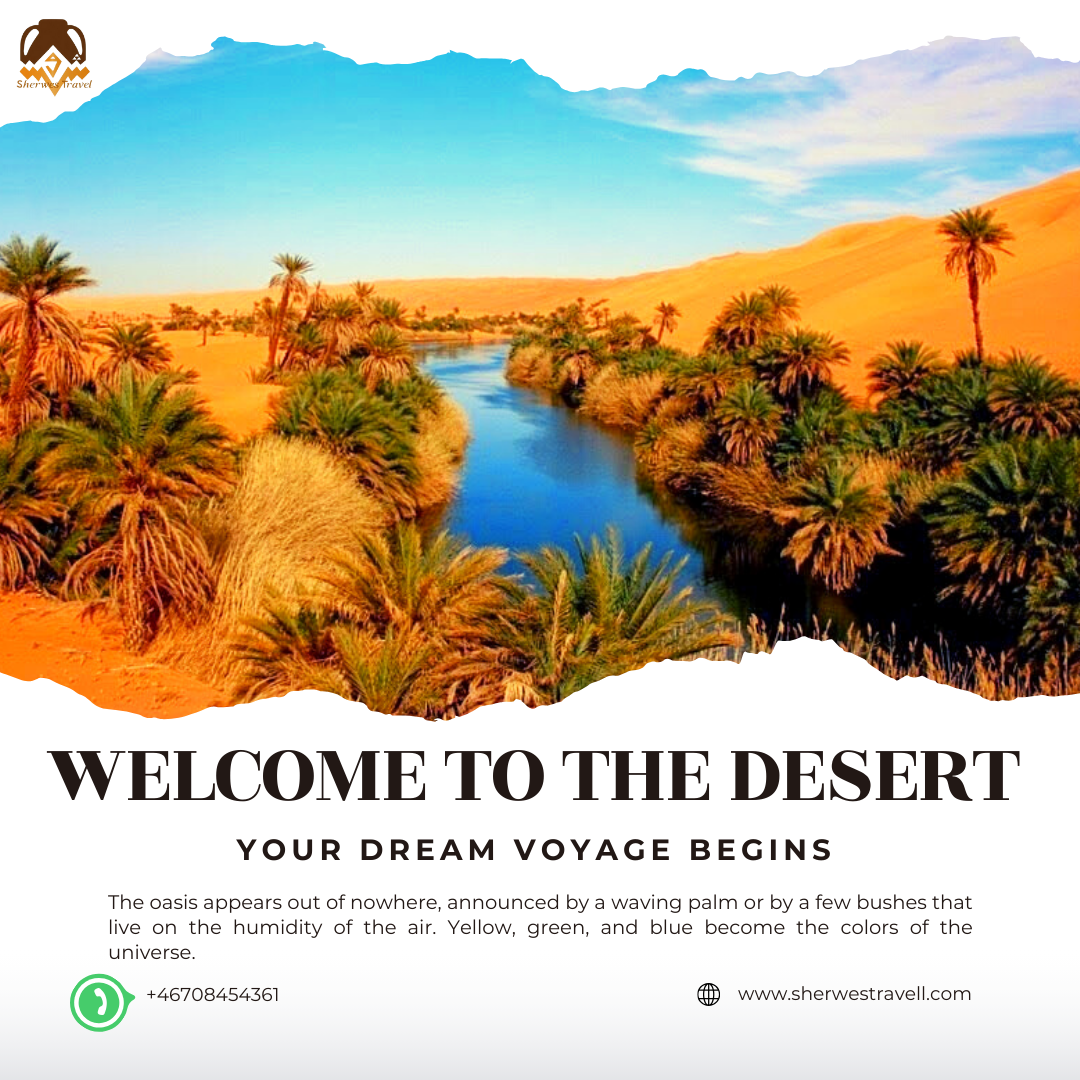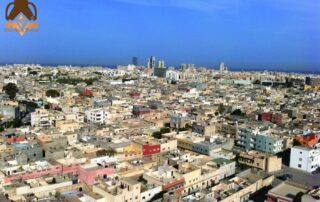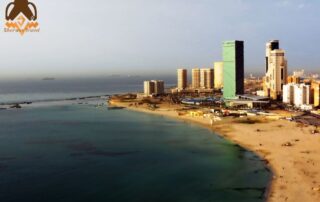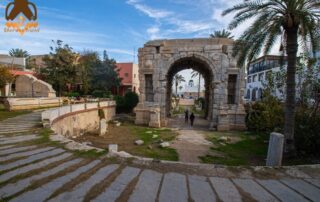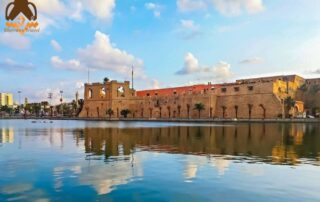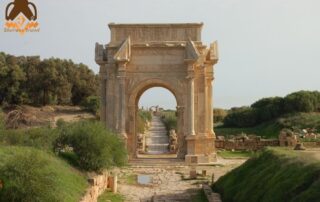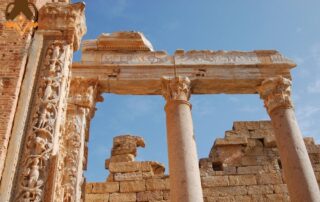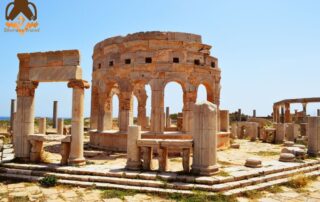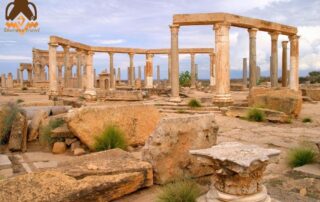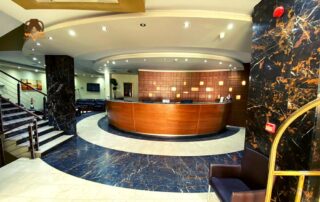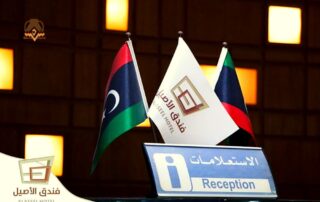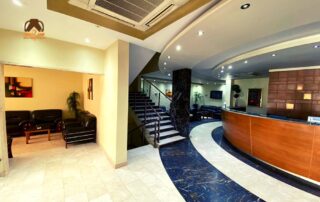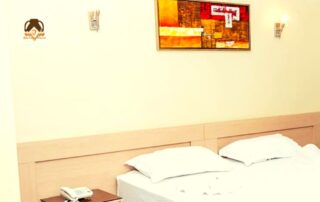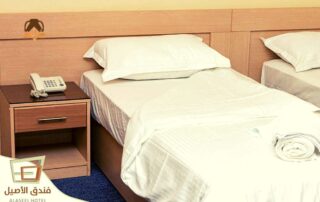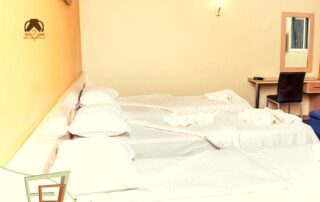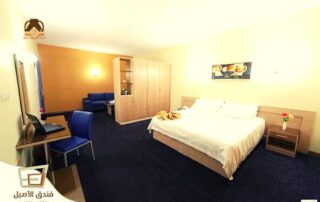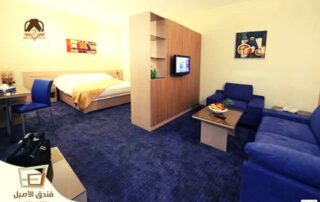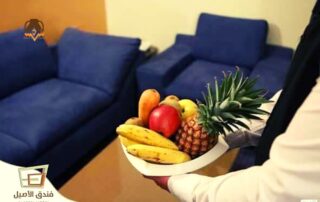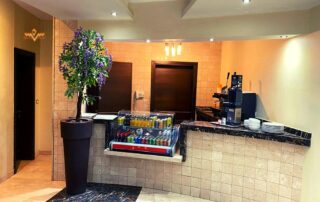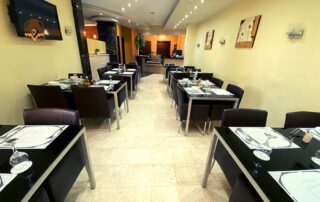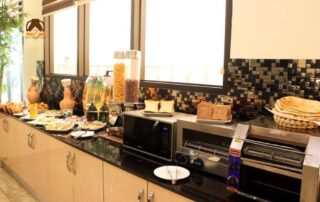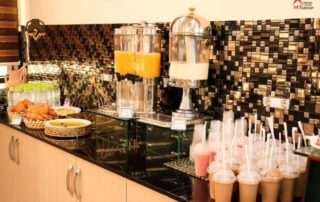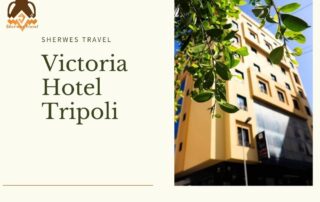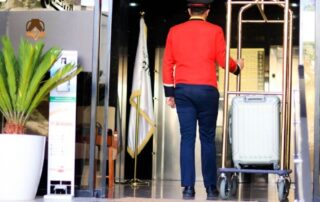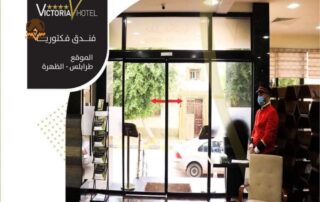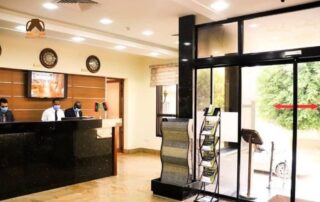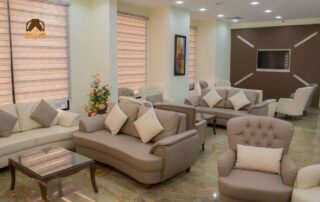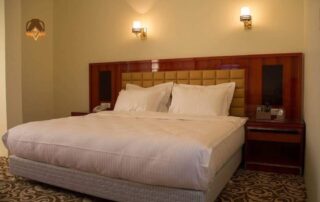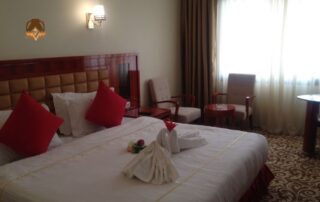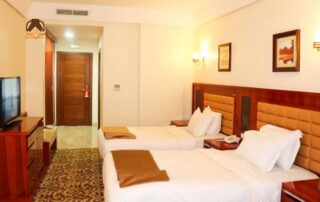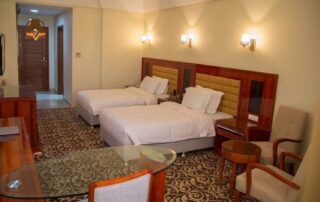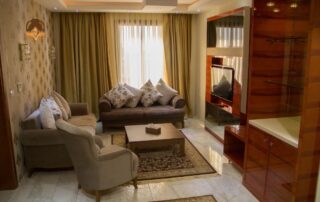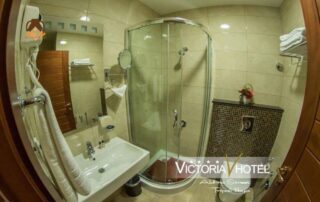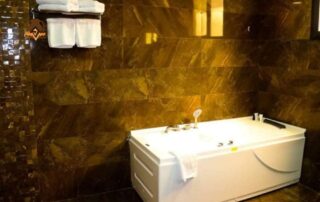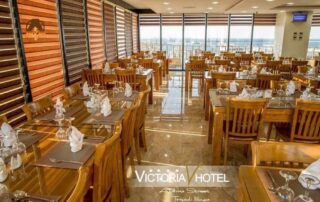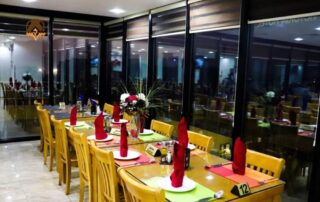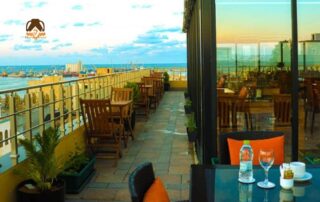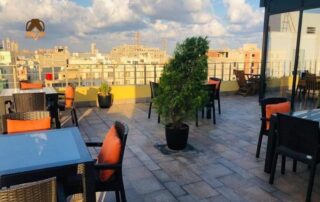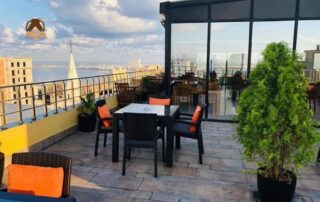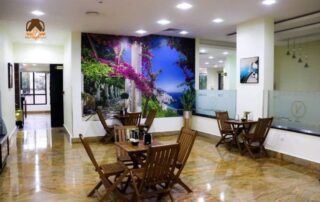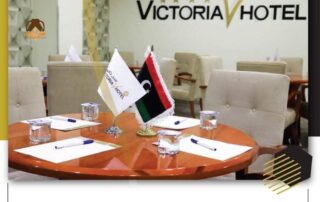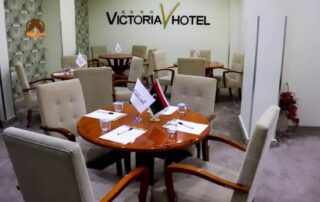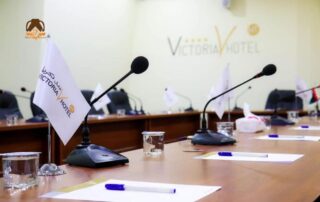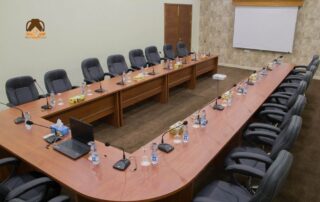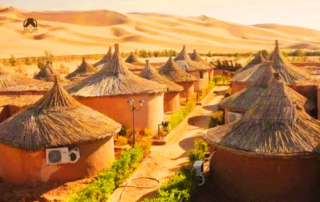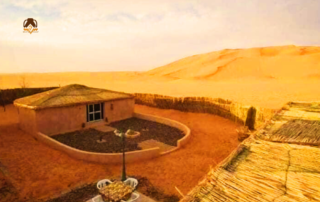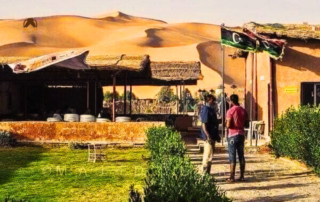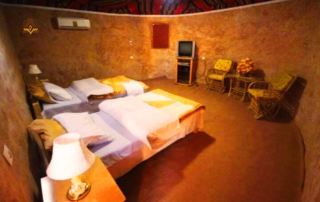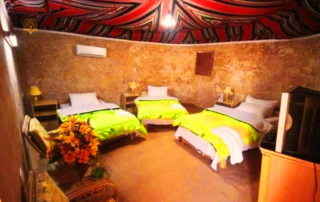Libya 7 Days/6 Nights
Tripoli – Sabratha – Germa – Ubari Lakes – Leptis Magna
Ubari oases in the Libyan desert
Ubari desert site
Unlike what one might expect in a vast sea of desert sand, the Libyan Desert includes several water bodies, including the Ubari lakes, which number more than ten lakes. From the air, they appear as bright mirrors of water in stark contrast to the ocean of dry yellow sand therein.
The Ubari Desert is located in southwestern Libya in the state historically known as the Fezzan State, near the border with Algeria between Wadi al-Shati in the north and Wadi al-Hayat (Wadi al-Ajal) in the south in an area known as Ramlet al-Dawada. Its area is 58 thousand km2, inhabited by Tuareg tribes. It was named after the city of Ubari, the capital of Wadi al-Hayat Governorate.
Ubari is located in one of the driest areas on earth. It is dominated by constant sun, and clouds rarely appear throughout the year. The average temperature in the summer months exceeds 40 degrees, and several millimeters of rainfall annually, perhaps the least on the face of the Earth (8 mm).
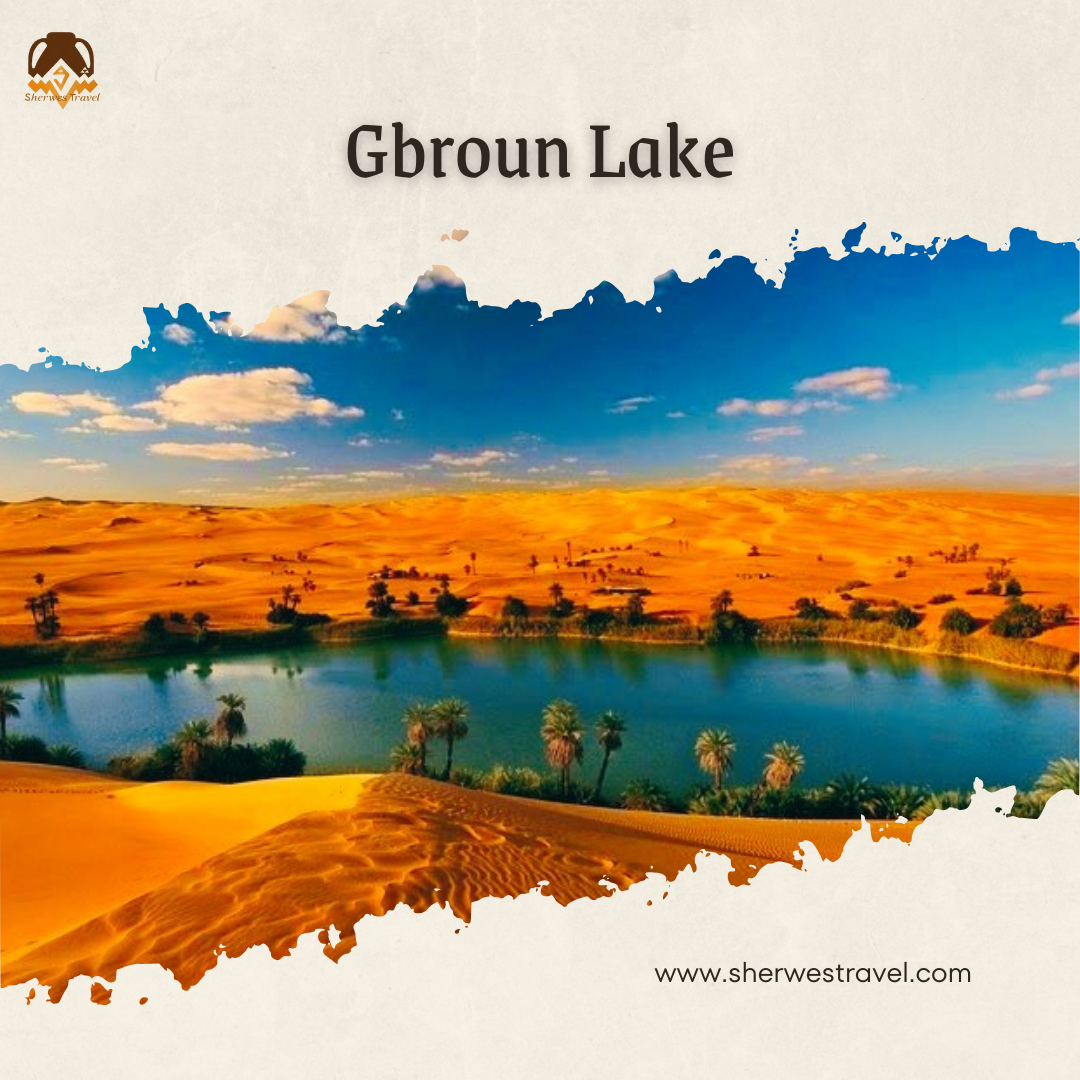
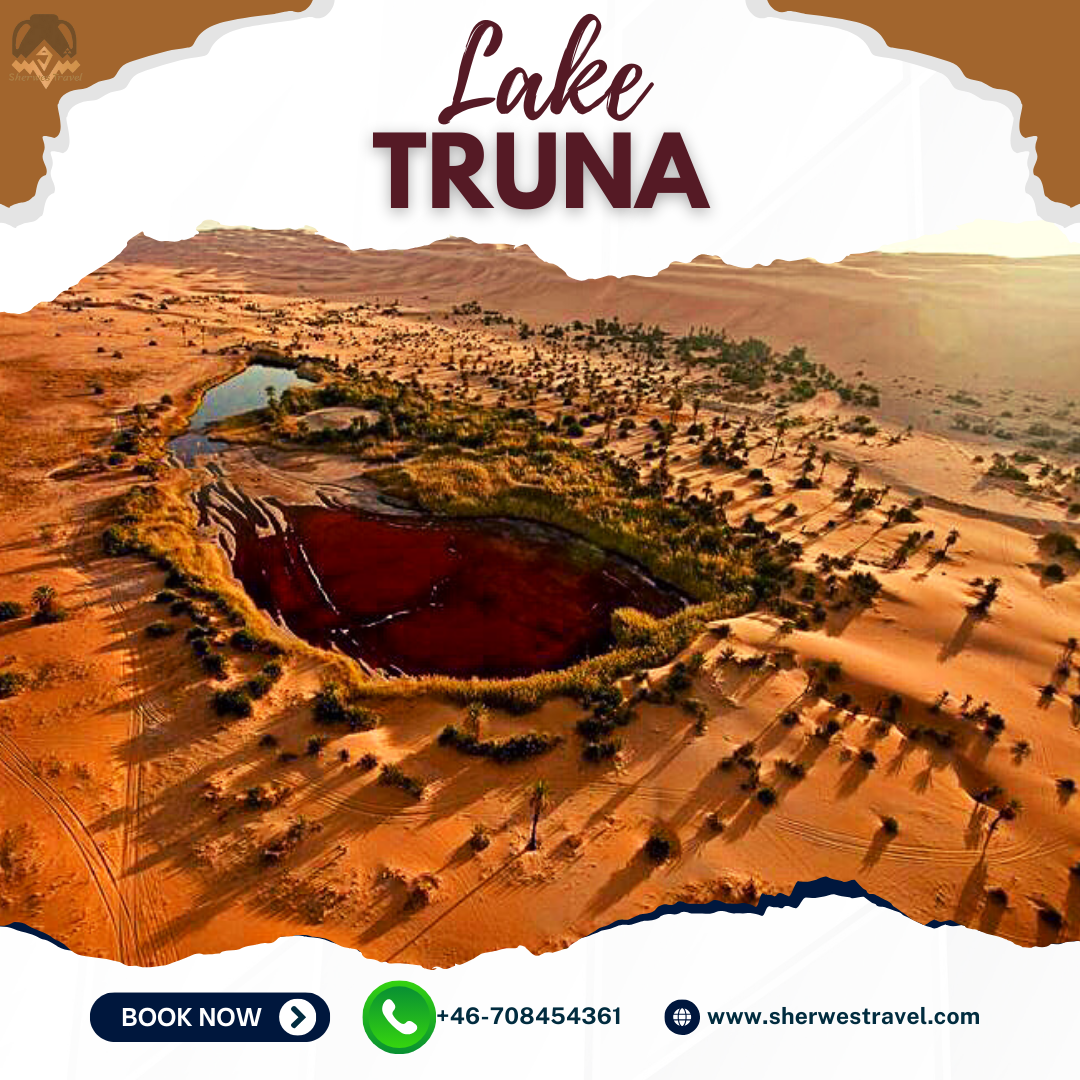
7 Days/6 Nights
Price on request
Tour highlights
Tripoli – Sabratha – Germa – Ubari Lakes – Leptis Magna
Discover the cultural and historical depth of Tripoli, a modern city filled with remnants of a grand past, including the old British Consulate, the Arch of Marcus Aurelius, the House of Ahmad Pasha al Qaramanli, the Naga Mosque, and the old markets.
Enjoy morning visit to the magnificent coastal site Sabratha, one of the largest and best-preserved Roman cities in the world
Explore Germa (Garama) an ancient civilisation in the Central Sahara
Enjoy a cooling swim at Lake Gbraoun, deep in the desert
Enjoy a picnic in the shade of a palm tree on the edge of a desert lake.
Walk through the history and discover the magnificent coastal site of Leptis Magna, one of the largest and best-preserved Roman cities in the world
Itinerary


Meet and assist on arrival at Mitiga airport and transfer to your hotel in the center of Tripoli. After your arrival, you will visit the Roman site of Sabratha.
Among all the coastal sites, Sabratha stands out as the most beautiful. A World Heritage Site, Sabratha was founded by the Canaanites (6th c. B.C.) and ruled by Carthage, Phoenicia, Numedia, and Rome in 46 B.C. The site offers a majestic collection of public buildings, arenas, and temples of Liber Pater, Serapis, Isis, and Hercules. Tripoli,” Oea” (the bride) of the Mediterranean, is the capital of Libya.
Later, you explore 20th-century Italian Tripoli. Exploring Tripoli’s 20th-century Italian architecture heritage will take you through three neighborhoods. Immediately south of Martyrs´ Square is the heart of the early 20th-century Tripoli. Dinner in a local restaurant and overnight at Victoria Hotel or Al Aseel Hotel. (B, L, D)
Libya’s capital and largest city, Tripoli, was founded by Phoenician traders in the 5th century BC. It was later absorbed and shaped by the colonizing influences of the Roman Empire, the Muslim world of the East, the Ottoman Empire, and Italian occupation. Today, it is an eclectic mix of cultures, with Islamic, Turkish, and local Libyan mores merging to create a rich and colorful heritage.
Later, catch a glimpse of Tripoli’s old town (Medina). The tour will include Funduq al Zahar, one of Tripoli’s numerous early merchants’ inns; the Clock Tower, an Ottoman Baroque piece completed in 1898; the Cathedral; Church of Santa Maria, the 18th century British Consulate, the 17th century French Consulate, the Arch of Marcus Aurelius and the mosques and souks of the medina. Lunch in a local restaurant. (L, D)

After breakfast, you will be transferred to Mitiga International Airport for your domestic flight to Ubari. After your arrival and check-in at the Qamer al-Sahra, you will visit the archaeological site of Germa.
Germa, also known in ancient times as Garama, is an archaeological site in Libya. It served as the capital of the Garamantian Kingdom, a civilization of Saharan Berber people who inhabited the Fezzan region in the northeastern Sahara Desert. Let’s delve into the fascinating history of Germa:
1. Garamantes and Their Kingdom:
• The Garamantes were a resilient Saharan Berber group whose power reached its zenith during the second and third centuries AD.
• They often clashed with the Roman Empire to the north, conducting raids across Rome’s African frontier.
• Garama, the capital, had a population of around four thousand, with an additional six thousand living in nearby villages within a five-kilometer radius.
• The Garamantes strategically retreated to the safety of the desert when faced with threats.
2. Roman Influence and Conquest:
• In 203 AD, Roman Emperor Septimius Severus launched a campaign deep into the Sahara and captured Garama.
• However, he soon abandoned the city, leaving it in the hands of the Garamantes.
3. Later Conquest:
• In 669 AD, Uqba ibn Nafi conquered Germa, marking another significant chapter in its history.
After the visit, we return to our Qamer al-Sahra Camp by the Ubari dunes for dinner and overnight

Explore the enchanting Ubari Lakes, known for their stunning beauty and pristine desert landscapes. Spend the day immersed in Libya’s natural wonders. Among the most picturesque lakes are Gaberoun and Umm al-Maa (the Mother of Water). Located beside the ruins of the old village, Gaberoun is the one tourists mostly visit. Enjoy a cooling swim at Lake Gaberoun deep in the desert.
Overnight at the Desert Moon Resort overlooking the dunes. (B, L, & D)

Say goodbye to the desert oasis as you transfer to the airport for your flight back to Tripoli. We’ll take care of your hotel transfer upon arrival, allowing you to unwind and reflect on your remarkable excursion. (B,L, D)

After breakfast, we head for Leptis Magna, one of the most spectacular Roman sites along the Mediterranean coast. Let your guide explain how the Romans lived in this part of their empire and their favorite pastimes. Lunch at a local restaurant near the site.
Notice: The Museum of Leptis Magna is closed to visitors.
Later, we return to Tripoli, where you will have a chance to explore 20th-century Italian Tripoli. Exploring Tripoli’s 20th-century Italian architecture heritage will take you through some neighborhoods. Tripoli underwent a huge architectural and urbanistic improvement under Italian rule. Italo Balbo, the 1934-1940 Governor of Italian Libya, is considered by some Italian historians (like G. Gentile) to be the Father of modern Libya. Overnight at Victoria Hotel or similar. (B, L, D)

Breakfast at the hotel and transfer to the airport 2 hours before the time of the departure flight, B
Accommodation
Al Aseel Hotel – Tripoli

Al Aseel Hotel
Enjoy the convenience of staying at the Al Aseel Hotel
A warm welcome
We warmly welcome all our clients who booked tours with us to the Al Aseel Hotel.
Al Aseel Hotel provides all the amenities to give you an excellent stay
The hotel has a 24-hour front desk, modern rooms, a restaurant, and a café
Wireless Internet access in all rooms and suites, meeting areas, and public spaces
The hotel is less than ten minutes away from Mitiga Airport (Tripoli)
Parking lot in front of the hotel
Accommodation
Victoria Hotel – Tripoli (Upgrade)

Accommodation
Desert Moon Resort – Tiwiwa
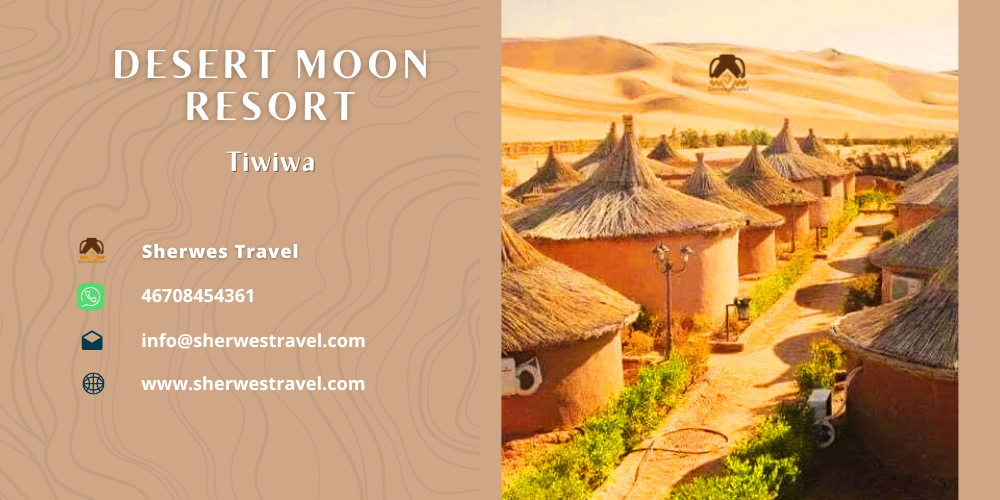
Services Included
Airport assistance and transfer from/to Tripoli Mitiga International Airport (MJI)
Transfer by a private air-conditioned vehicle
Accommodation
All meals and coffee breaks
Transportation
English speaking local guide
Entrance fees to all museums and sites
Services Not Included
Visa approval fee through the Department of Passports to visit Libya. This fee must be paid in advance before submission
International Flights (We can issue 2-way tickets through Tunis, Istanbul or Cairo on your request)
Extra services in hotels such as phone calls, laundry, and room service…Etc.
Services are not specifically stated in the itinerary
Personal spending
Libyan embassies visa fees


